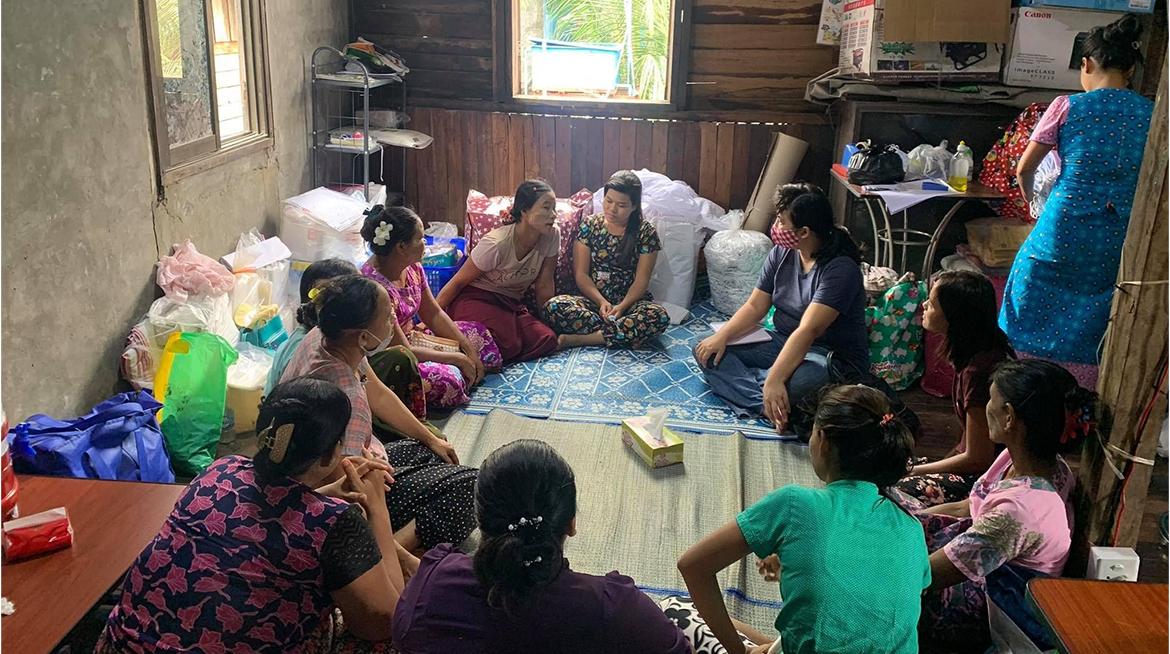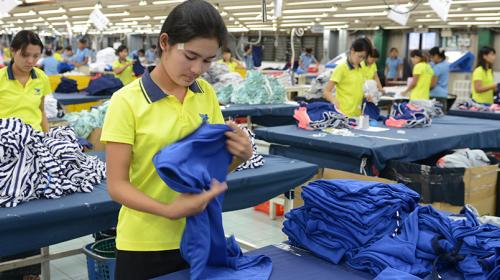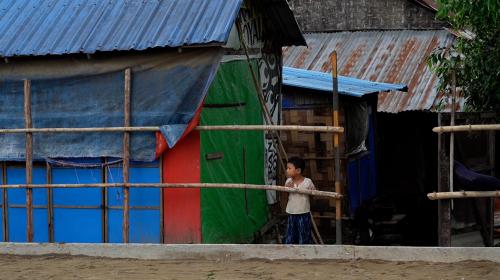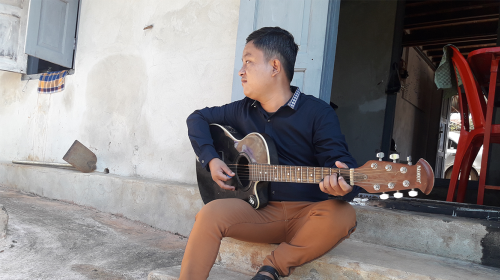
Original Article Available at :
Myanmar migrants have faced job and income losses, violations of labour laws and increased stress since the beginning of the COVID-19 pandemic. LIFT provided the largest programmatic response to the crisis for migrants in Myanmar, engaging ten partners in crucial humanitarian assistance, information and livelihood support. Migrant workers in peri-urban Yangon, especially women migrants, have been at the heart of LIFT’s COVID-19 response.
In April 2020, Ngu Ywet Ei*, a migrant worker in Yangon, returned from her hometown in the Delta, where she had gone for Thingyan. Upon returning, she discovered that she would not be paid for her past work at her garment factory. Her manager claimed she had taken leave without permission, although Ngu Ywet Ei had received approval before leaving. She now faced the prospect of losing the money she needed to support her family of seven in Yangon during the pandemic.
Ngu Ywet Ei had turned to LIFT-funded ActionAid for legal advice and they connected her with Legal Clinic Myanmar which helped to receive the due 200,000 Myanmar kyat (US$151) from her employer. Once she had received her withheld salary, Ngu Ywet Ei quit her old job and is now working at a different garment factory earning 50,000 kyat (US$38) extra.
Ngu Ywet Ei is one of 560,000 people working in Myanmar’s garment industry, most of whom are migrant workers and 90 per cent women. The COVID-19 outbreak left many of them without income due to factory shutdowns, layoffs or employers refusing to pay their workers because of disruptions in the supply of raw materials and reduced orders.
The UNOPS-managed Livelihoods and Food Security Fund (LIFT), together with international and local partners, emphasized the inclusion of internal migrants - with a focus on women - in Myanmar’s COVID-19 response.
Legal and psychological counselling for migrants in peri-urban Yangon
LIFT’s partners ActionAid, CARE, Eden, People in Need, and the Women’s Organization Network supported nearly 700,000 people in the Hlaing Thar Yar and Shwe Pyi Thar townships, the two main destinations for internal migrants in Yangon. They distributed food and cash aid and provided legal counselling to people whose employers violated labour protection laws such as forcing workers to work under conditions putting their health at risk and withholding their wages.
People in Need supported 11,506 migrant workers, including 92 per cent women, with paralegal advice. Through their civil society and labour organization partners Action Labour Rights and Solidarity Trade Union of Myanmar, they advised migrants on tackling labour exploitation and abuse. With their help, the migrants reclaimed 578,770,050 kyat (US$435,655) from employers. People in Need also counselled 639 people at Aye Chan Thaw Ein Workers’ Centre with support from Yaung Chi Oo Workers’ Association and through the telephone hotline ‘Call Me Today’. These services helped migrants cope with stress caused by loss of employment, lack of emotional support, and fears about getting infected by the virus. A laid-off factory worker later said: “Having someone to listen to my problems has encouraged me not to give up”.
Inclusive and innovative cash transfers for the most vulnerable
ActionAid provided cash transfers up to 240,000 kyat (US$181) via mobile money-transfer service Wave Money and in-person distribution to 1,458 workers who had lost their jobs. While unemployed factory workers constituted 63 per cent of ActionAid’s cash recipients, the remaining 37 per cent included informal sector workers and other vulnerable migrants, such as people with disabilities and people living with HIV. The cash transfers allowed people to purchase food and pay for housing costs, and make their own decisions about critical needs during the crisis.
CARE, through their partner Business Kind Myanmar, provided up to 50,000 kyat (US$38) for hostel fees and meals to migrant workers in the garment sector who had lost their jobs. Through Wave Money and in-person distribution, 7,655 factory workers, including 86 per cent women, received support in Hlaing Thar Yar and Shwe Pyi Thar. In collaboration with the civil society organization Sex Workers in Myanmar, CARE distributed 72,000 kyat (US$54) to 500 migrant sex workers who had lost their incomes due to the pandemic and faced stigma and criminalization that prevented them from accessing government support.
Women migrants in focus
Food aid from Eden complemented ActionAid and CARE cash transfers. Eden and its partner New Hope prepared lentils and fortified rice for migrant children and adults, reaching 36,064 households in Hlaing Thar Yar. An operational shift from jewellery-making for women trafficking survivors to sewing reusable face masks and producing liquid soap allowed Eden to help 600 women migrants in Hlaing Thar Yar to earn an income. Stay-at-home orders necessary to curb the spread of COVID-19, coupled with women’s economic inequality and increased vulnerability to trafficking and sexual violence, have led to a “shadow pandemic” of intensified gender-based violence against women and girls. Following job losses in Myanmar’s highly feminized garment sector and gender-based violence, 69 women stayed at emergency shelters, supported by local partners of Women’s Organization Network. They received meals, counselling, education on labour rights and job matching services.
*name changed to protect personal information







